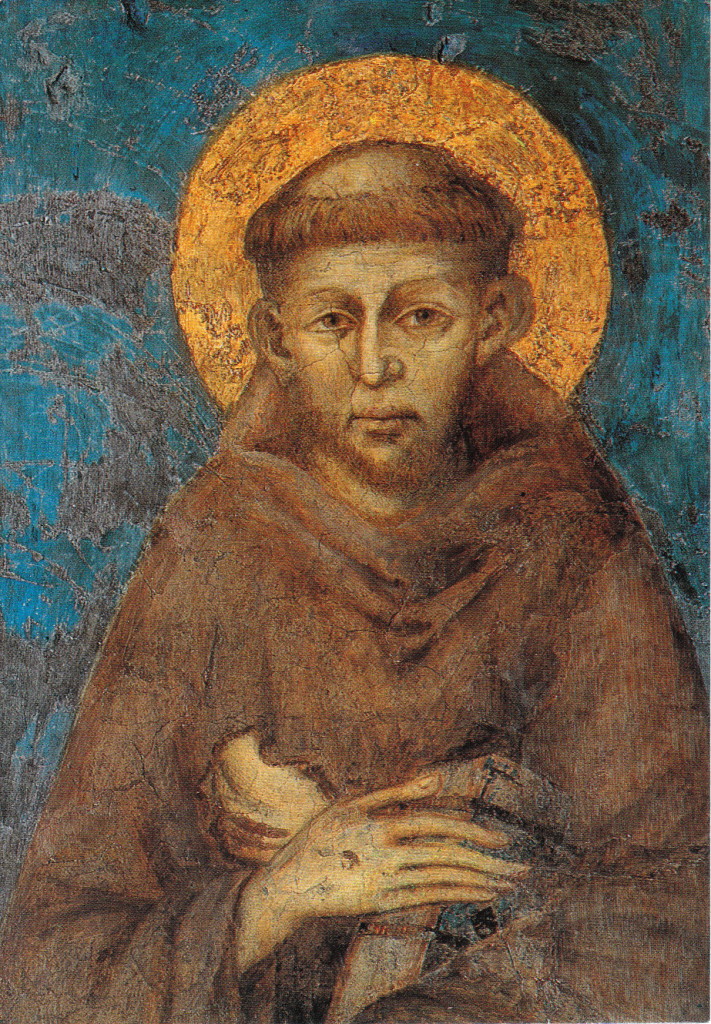Wholeness
That Lives in Us ~ by Rumi
“From wonder into wonder existence opens.”
~ Lao Tzu
“Consciousness is the basis of all life
and the field of all possibilities.
Its nature is to expand and unfold its full potential.
The impulse to evolve is thus inherent in the very nature of life.”
~ Maharishi Mahesh Yogi
“There are no mistakes, no coincidences,
all events are blessings given to us to learn from.”
~ Elisabeth Kubler-Ross
“Life will give you whatever experience is most helpful
for the evolution of your consciousness.”
~ Eckhart Tolle
Life can be found only in the present moment.
The past is gone, the future is not yet here, and if we do not go back to ourselves in the present moment, we cannot be in touch with life.
~ Thich Nhat Hanh
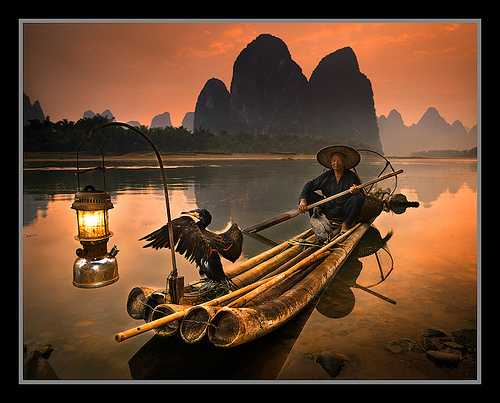
That Lives in Us ~ by Rumi
If you put your hands on this oar with me,
they will never harm another, and they will come to find
they hold everything you want.
If you put your hands on this oar with me, they would no longer
lift anything to your
mouth that might wound your precious land –
that sacred earth that is your body.
If you put your soul against this oar with me,
the power that made the universe will enter your sinew
from a source not outside your limbs, but from a holy realm
that lives in us.
Exuberant is existence, time a husk.
When the moment cracks open, ecstasy leaps out and devours space;
love goes mad with the blessings, like my words give.
Why lay yourself on the torturer’s rack of the past and the future?
The mind that tries to shape tomorrow beyond its capacities
will find no rest.
Be kind to yourself, dear – to our innocent follies.
Forget any sounds or touch you knew that did not help you dance.
You will come to see that all evolves us.
(Source: Love Poems From God: Twelve Sacred Voices from the East and West, by Daniel Ladinsky )
More Enlightened Rumi Wisdom Words
“There is no reality but God,
says the completely surrendered sheik,
who is an ocean for all beings.”
“When you do things from your soul,
you feel a river moving in you, a joy.”
“There is a life-force within your soul,
seek that life.
There is a gem in the mountain of your body,
seek that mine.
O traveler,
if you are in search of that
Don’t look outside,
look inside yourself and seek that.”
“Remember, the entrance door to the sanctuary is inside you.”
“I have lived on the lip of insanity,
wanting to know reasons,
knocking on a door.
It opens.
I’ve been knocking from the inside.”
“The world is a prison and we are the prisoners:
Dig a hole in the prison and let yourself out!”
“You were born with wings.
Why prefer to crawl through life?”
“Why do you stay in prison when the door is so wide open? ”
“I long to escape the prison of my ego and lose myself in you.”
” You have been a prisoner of a little pond,
I am the ocean and its turbulent flood.
Come merge with me, leave this world of ignorance.
Be with me, I will open the gate to your love.”
~ Rumi
What is Perfection?
“All people are flawed;
none are perfect.
But the most flawed,
are those who think or claim they’re perfect.”
~ Ron Rattner, Sutra Sayings
“Indeed, there is not a righteous man on earth
who continually does good and who never sins”
~ Ecclesiastes 7:20
“The man with insight enough to admit his limitations
comes nearest to perfection.”
~ Johann Wolfgang Von Goethe
“Were I to await perfection, my book would never be finished.”
~ Chinese Proverb
“Nowadays the world is becoming increasingly materialistic,
and mankind is reaching toward the very zenith of external progress,
driven by an insatiable desire for power and vast possessions.
Yet by this vain striving for perfection in a world where everything is relative, they wander even further away from inward peace and happiness of the mind.”
~ H.H. the Dalai Lama
“Ring the bells that still can ring
Forget your perfect offering.
There is a crack in everything,
That’s how the light gets in.”
~ Leonard Cohen
“This is the very perfection of a man,
to find out his own imperfections.”
~ Saint Augustine
“Advance, and never halt,
for advancing is perfection.”
~ Kahlil Gibran
“Perfection is a state in which things are the way they are,
and are not the way they are not.
As you can see, this universe is perfect.”
~ Werner Erhard, est
“Incarnation is limitation.”
“All is perfection,
but nobody’s perfect.”
~ Ron Rattner, Sutra Sayings
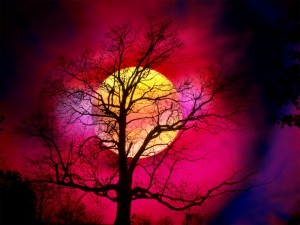
What is Perfection?
Q. What is perfection?
A. “Perfection” is an idea;
a conception in duality reality.
Perfection implies imperfection.
So in relative reality we can’t have perfection without imperfection.
And in Ultimate Reality beyond relative reality,
there is no perfection.
Ultimate Reality is beyond conception,
and so beyond “perfection”.
Q. What is perfection?
A. “Perfection” is an idea;
a conception in duality reality.
Perfection implies imperfection.
So in relative reality we can’t have perfection without imperfection.
And in Ultimate Reality beyond relative reality,
there is no perfection.
Ultimate Reality is beyond conception,
and so beyond “perfection”.
Ron’s Reflections on “What is Perfection?”
Dear Friends,
Have you ever met a ‘perfect’ person? Or perceived or projected “perfection” in this crazy world of ecological, political, and economic crises and constant conflicts? Have you ever considered seeking inner “perfection” as a life goal?
Before my mid-life change of life, I had never reflected on ideas of “perfection”.
But soon thereafter I attended “est”, an impactful self-help seminar where I was first exposed to certain Eastern spirituality principles skillfully collected and experientially presented to help participants radically transform their lives.
The key est teaching was acceptance of the present moment – emotionally accepting “what is” because it could not be otherwise. [See Getting “IT” at est, ] Apt to this teaching was the foregoing “perfection” definition, by est’s founder Werner Erhard:
“Perfection is a state in which things are the way they are,
and are not the way they are not.
As you can see, this universe is perfect.”
Intrigued by est, I began reflecting about “perfection” and sometimes wrote sutras and essays, later posted online. Accordingly, many Silly Sutras postings deal with my evolving reflections on “perfection”. Because these reflections significantly have helped my spiritual opening process, I have shared them hoping they may help others, as they have helped me.
After est, I soon realized that in our phenomenal duality reality “perfection” is an idea, which implies it’s opposite – imperfection; that we can’t have one, without the other. So, a “perfect” person isn’t possible.
Ultimately, I became persuaded by non-duality teachings discouraging “vain striving for perfection in a world where everything is relative” – and impermanent.
But for a while I mistakenly believed that there were exceptions to my conclusion that an infallible “perfect” person isn’t possible.
This happened after I was blessed to meet my beloved venerable Hindu guru, Sri Dhyanyogi Madhusudandas. [ See The Luckiest Day of My Life ~ Meeting My Spiritual Master ] and also met certain other “enlightened” spiritual teachers in the US and India. Whereupon, I became a “born-again Hindu”, and read and recited Eastern scriptures and liturgy glorifying divinity of “gurus” and awakened “buddhas”.
Naively, I thereafter began projecting “perfection” onto Guruji and a few other “enlightened” teachers. But, ultimately, I realized from inner and outer experience that incarnation is limitation, and that however evolved an incarnate being may be s/he is fallible; that here on Earth, where we experience life in apparent physical bodies, human fallibility ‘goes with the territory’ – that “to err is human”.
With that realization, I ceased projecting “perfection” onto individuals and began relying on inner – not outer – authority. No longer a “born-again Hindu” I became, and remain, an “Uncertain Undo” , seeking relief from belief.
My devotional motto became, and remains:
“Adoration of the Infinite; not adulation of the incarnate”.
And I wrote The Law of Flaw, a poem beginning with these verses:
All people are flawed;
none are perfect.
But the most flawed,
are those who think or claim they’re perfect.
In reading the seemingly contradictory above quotes about perfection please remember that in this impermanent world of relativity and duality words often point paradoxically or metaphorically to Eternal truth, which is ineffable. So
“The truest sayings are paradoxical.”
~ Lao Tzu
Whether or not we may agree that “perfection is a state in which things are the way they are, and are not the way they are not”, I hope this perfection definition helps you – as it helped me – find inner peace and happiness by emotionally accepting “what is” NOW, because it could not be otherwise.
But let us remember that emotionally accepting the present moment need not deter us from questioning or nonviolently resisting – like Dr. Martin Luther King, Jr. and Mahatma Gandhi – pervasive suffering and injustice caused by human ignorance and greed, while envisioning our evolutionary transcendence thereof.
And so may it be!
Ron Rattner
Pope Francis’ Call For A Planetary Revolution of Love and Tenderness
“When one realizes that life, even in the middle of so many contradictions, is a gift, that love is the source and the meaning of life, how can they withhold their urge to do good to another fellow being?”
[W]e all need each other, none of us is an island, an autonomous and independent “I,” separated from the other . . . .we can only build the future by standing together, including everyone.. . . .
[E]verything is connected, and we need to restore our connections to a healthy state.
“We have so much to do, and we must do it together.”
~ Pope Francis – 2017 TED Talk
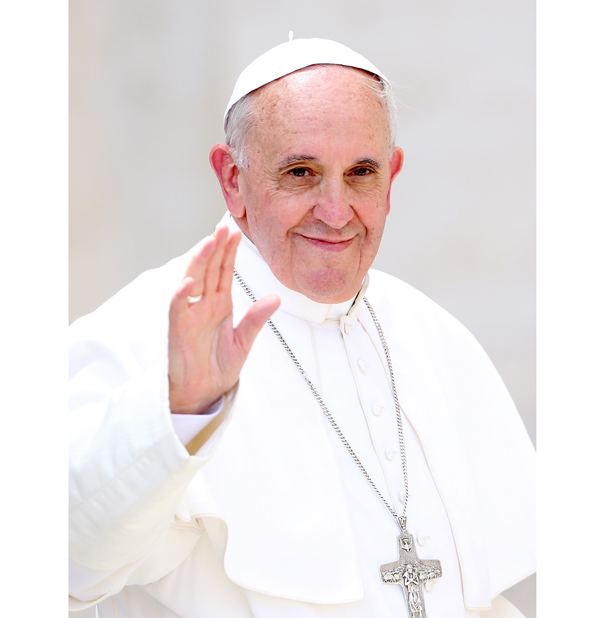
Pope Francis
Ron’s Introduction.
Dear Friends, I am deeply privileged to share with you below an embedded video of a deeply inspiring TED talk, with English subtitles and transcript, given from the Vatican by His Holiness Pope Francis, which applies to everyone everywhere regardless of religious, spiritual, or ethical beliefs.
This TED talk has inspired me more than any other I’ve ever heard. And I urge you to deeply consider the Pope’s message with an open heart and an open mind as he reminds us that we have so much to do, and we must do it together.
May it inspire all of us to become collective participants in a transformative planetary revolution of love and tenderness.
And so shall it be!
Ron Rattner
Pope’s 2017 TED Talk Video.
Pope’s 2017 TED Talk Transcript.
Good evening – or, good morning, I am not sure what time it is there. Regardless of the hour, I am thrilled to be participating in your conference.
I very much like its title – “The Future You” – because, while looking at tomorrow, it invites us to open a dialogue today, to look at the future through a “you.” “The Future You:” the future is made of you’s, it is made of encounters, because life flows through our relations with others. Quite a few years of life have strengthened my conviction that each and everyone’s existence is deeply tied to that of others: life is not time merely passing by, life is about interactions.
As I meet, or lend an ear to those who are sick, to the migrants who face terrible hardships in search of a brighter future, to prison inmates who carry a hell of pain inside their hearts, and to those, many of them young, who cannot find a job, I often find myself wondering: “Why them and not me?” I, myself, was born in a family of migrants; my father, my grandparents, like many other Italians, left for Argentina and met the fate of those who are left with nothing. I could have very well ended up among today’s “discarded” people. And that’s why I always ask myself, deep in my heart: “Why them and not me?”
First and foremost, I would love it if this meeting could help to remind us that we all need each other, none of us is an island, an autonomous and independent “I,” separated from the other, and we can only build the future by standing together, including everyone. We don’t think about it often, but everything is connected, and we need to restore our connections to a healthy state. Even the harsh judgment I hold in my heart against my brother or my sister, the open wound that was never cured, the offense that was never forgiven, the rancor that is only going to hurt me, are all instances of a fight that I carry within me, a flare deep in my heart that needs to be extinguished before it goes up in flames, leaving only ashes behind.
Many of us, nowadays, seem to believe that a happy future is something impossible to achieve. While such concerns must be taken very seriously, they are not invincible. They can be overcome when we don’t lock our door to the outside world. Happiness can only be discovered as a gift of harmony between the whole and each single component. Even science – and you know it better than I do – points to an understanding of reality as a place where every element connects and interacts with everything else.
And this brings me to my second message. How wonderful would it be if the growth of scientific and technological innovation would come along with more equality and social inclusion. How wonderful would it be, while we discover faraway planets, to rediscover the needs of the brothers and sisters orbiting around us. How wonderful would it be if solidarity, this beautiful and, at times, inconvenient word, were not simply reduced to social work, and became, instead, the default attitude in political, economic and scientific choices, as well as in the relationships among individuals, peoples and countries. Only by educating people to a true solidarity will we be able to overcome the “culture of waste,” which doesn’t concern only food and goods but, first and foremost, the people who are cast aside by our techno-economic systems which, without even realizing it, are now putting products at their core, instead of people.
Solidarity is a term that many wish to erase from the dictionary. Solidarity, however, is not an automatic mechanism. It cannot be programmed or controlled. It is a free response born from the heart of each and everyone. Yes, a free response! When one realizes that life, even in the middle of so many contradictions, is a gift, that love is the source and the meaning of life, how can they withhold their urge to do good to another fellow being?
In order to do good, we need memory, we need courage and we need creativity. And I know that TED gathers many creative minds. Yes, love does require a creative, concrete and ingenious attitude. Good intentions and conventional formulas, so often used to appease our conscience, are not enough. Let us help each other, all together, to remember that the other is not a statistic or a number. The other has a face. The “you” is always a real presence, a person to take care of.
There is a parable Jesus told to help us understand the difference between those who’d rather not be bothered and those who take care of the other. I am sure you have heard it before. It is the Parable of the Good Samaritan. When Jesus was asked: “Who is my neighbor?” – namely, “Who should I take care of?” – he told this story, the story of a man who had been assaulted, robbed, beaten and abandoned along a dirt road. Upon seeing him, a priest and a Levite, two very influential people of the time, walked past him without stopping to help. After a while, a Samaritan, a very much despised ethnicity at the time, walked by. Seeing the injured man lying on the ground, he did not ignore him as if he weren’t even there. Instead, he felt compassion for this man, which compelled him to act in a very concrete manner. He poured oil and wine on the wounds of the helpless man, brought him to a hostel and paid out of his pocket for him to be assisted.
The story of the Good Samaritan is the story of today’s humanity. People’s paths are riddled with suffering, as everything is centered around money, and things, instead of people. And often there is this habit, by people who call themselves “respectable,” of not taking care of the others, thus leaving behind thousands of human beings, or entire populations, on the side of the road. Fortunately, there are also those who are creating a new world by taking care of the other, even out of their own pockets. Mother Teresa actually said: “One cannot love, unless it is at their own expense.”
We have so much to do, and we must do it together. But how can we do that with all the evil we breathe every day? Thank God, no system can nullify our desire to open up to the good, to compassion and to our capacity to react against evil, all of which stem from deep within our hearts. Now you might tell me, “Sure, these are beautiful words, but I am not the Good Samaritan, nor Mother Teresa of Calcutta.” On the contrary: we are precious, each and every one of us. Each and every one of us is irreplaceable in the eyes of God. Through the darkness of today’s conflicts, each and every one of us can become a bright candle, a reminder that light will overcome darkness, and never the other way around.
To Christians, the future does have a name, and its name is Hope. Feeling hopeful does not mean to be optimistically naïve and ignore the tragedy humanity is facing. Hope is the virtue of a heart that doesn’t lock itself into darkness, that doesn’t dwell on the past, does not simply get by in the present, but is able to see a tomorrow. Hope is the door that opens onto the future. Hope is a humble, hidden seed of life that, with time, will develop into a large tree. It is like some invisible yeast that allows the whole dough to grow, that brings flavor to all aspects of life. And it can do so much, because a tiny flicker of light that feeds on hope is enough to shatter the shield of darkness. A single individual is enough for hope to exist, and that individual can be you. And then there will be another “you,” and another “you,” and it turns into an “us.” And so, does hope begin when we have an “us?” No. Hope began with one “you.” When there is an “us,” there begins a revolution.
The third message I would like to share today is, indeed, about revolution: the revolution of tenderness. And what is tenderness? It is the love that comes close and becomes real. It is a movement that starts from our heart and reaches the eyes, the ears and the hands. Tenderness means to use our eyes to see the other, our ears to hear the other, to listen to the children, the poor, those who are afraid of the future. To listen also to the silent cry of our common home, of our sick and polluted earth. Tenderness means to use our hands and our heart to comfort the other, to take care of those in need.
Tenderness is the language of the young children, of those who need the other. A child’s love for mom and dad grows through their touch, their gaze, their voice, their tenderness. I like when I hear parents talk to their babies, adapting to the little child, sharing the same level of communication. This is tenderness: being on the same level as the other. God himself descended into Jesus to be on our level. This is the same path the Good Samaritan took. This is the path that Jesus himself took. He lowered himself, he lived his entire human existence practicing the real, concrete language of love.
Yes, tenderness is the path of choice for the strongest, most courageous men and women. Tenderness is not weakness; it is fortitude. It is the path of solidarity, the path of humility. Please, allow me to say it loud and clear: the more powerful you are, the more your actions will have an impact on people, the more responsible you are to act humbly. If you don’t, your power will ruin you, and you will ruin the other. There is a saying in Argentina: “Power is like drinking gin on an empty stomach.” You feel dizzy, you get drunk, you lose your balance, and you will end up hurting yourself and those around you, if you don’t connect your power with humility and tenderness. Through humility and concrete love, on the other hand, power – the highest, the strongest one – becomes a service, a force for good.
The future of humankind isn’t exclusively in the hands of politicians, of great leaders, of big companies. Yes, they do hold an enormous responsibility. But the future is, most of all, in the hands of those people who recognize the other as a “you” and themselves as part of an “us.” We all need each other. And so, please, think of me as well with tenderness, so that I can fulfill the task I have been given for the good of the other, of each and every one, of all of you, of all of us.
Thank you.
Universal Intelligence
~ by Tom Atlee
“The harmony of natural law…reveals an intelligence of such superiority that, compared with it, all the systematic thinking and acting of human beings is an utterly insignificant reflection.”
~ Albert Einstein, The World As I See It
“I believe in Spinoza’s God who reveals Himself in the orderly harmony of what exists, not in a God who concerns Himself with the fates and actions of human beings.”
~ Albert Einstein, Telegram of 1929
“Everyone who is seriously involved in the pursuit of science becomes convinced that a spirit is manifest in the laws of the Universe – a spirit vastly superior to that of man, and one in the face of which we with our modest powers must feel humble. In this way the pursuit of science leads to a religious feeling of a special sort, which is indeed quite different from the religiosity of someone more naive.”
~ Albert Einstein [As quoted in Dukas, Helen and Banesh Hoffman. (1979). Albert Einstein – The Human Side, Princeton University Press.]
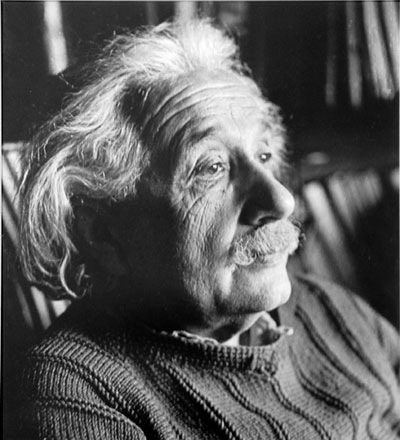
Albert Einstein
Ron’s Introduction
Albert Einstein was not only a great scientist but a wise philosopher and a pragmatic “true mystic” … “of a deeply religious nature.” (New York Times Obituary, April 19, 1955)
Einstein did not believe in a formal, dogmatic religion, but was religiously and reverently awed and humbled with a “cosmic religious feeling” by the immense beauty and eternal mystery of our Universe. He often commented publicly on religious and ethical subjects, and thereby he became widely respected for his moral integrity and mystical wisdom, as well as for his scientific genius.
In a collection of essays entitled The World As I See It, first published 1933, Einstein explained thusly his reverence for God as supreme Intelligence:
“The harmony of natural law…reveals an intelligence of such superiority that, compared with it, all the systematic thinking and acting of human beings is an utterly insignificant reflection.”
~ Albert Einstein, The World As I See It.
In December 2010, I discovered online and republished on SillySutras.com the excellent essay below about Universal Intelligence, believing it to be a verbatim extract from Albert Einstein’s “The World As I See It”, because it began with the above quote.
So I attributed the entire essay to Einstein. But I was mistaken.
Not until December 2016, did I discover that the essay was not written by Einstein, but by Tom Atlee of The Co-Intelligence Institute, a non-profit organization, which had published the Universal Intelligence essay commencing with the foregoing Einstein quotation at http://www.co-intelligence.org/Universal_Intelligence.html .
Since the essay is inspired by and harmoniously consistent with Einstein’s views, I am continuing to republish it with corrected attribution, and with sincere apologies to Tom Atlee and any prior visitors to the Silly Sutras website who may have been misled by my mistaken attribution.
Universal Intelligence
by Tom Atlee
“There is something about the universe — an elegant order in the way everything fits and unfolds, an inexplicable beauty in its living patterns, and the mysterious depth and expressiveness of it all — that reminds us of the brilliance we see in the works of great artists, scientists, engineers, and saints.
Some people believe that human intelligence is the pinnacle of natural evolution and can outdo anything nature has to offer — and that there is no God, and that nature has nothing remotely resembling consciousness or intelligence. Others say that nature’s (or God’s) brilliance is greater than any human intelligence — ultimately awesome in its scope and endlessly surprising in its details — and that human intelligence is a small but elegant expression of this larger intelligence and has much to learn from it.
More often than not, I find myself in this latter group — those who sense some kind(s) of universal intelligence. To some degree, this is a matter of faith. To some degree, it seems that the evidence surrounds us. For those of us who see things this way, I suspect it honors universal intelligence more if we contemplate it, share our sense of it, and tap into it rather than argue about it with others who see things differently. In any case, this article describes how I see it.
Christians see a higher intelligence they call God’s plan, or the will of God. Taoists see a higher intelligence they call the Tao, the Way of Nature. Meditative traditions speak of cosmic consciousness. Most indigenous peoples consider all of nature to be intelligent and alive. Scientists speak of natural laws — and some are now researching what they call complex, adaptive systems — systems that respond to the world around them, in ways that look a lot like learning. The whole process of evolution is clearly a learning process, a developing of new variations that work better, or work in new environments. Some people see evolution as the dynamic unfolding Great Story of the Living Universe and consciously celebrate and learn from it.
I bundle all these phenomena into one package and label it “universal intelligence.”
When I’m feeling esoteric, I might describe it something like this:
We live in a sea of information, a web of interconnection, a field of what some Buddhists call inter-being — a dynamic state of interactive, resonant existential communion. There are universal patterns, powers and wisdom at the core of our being, and the universe vibrates with our every act and thought. What happens in one place and time is linked to everything else far more intimately than we could ever imagine. Synchronicities and analogs abound. Certain patterns keep cropping up: We see BRANCHES in trees, rivers, roads, fields of study, computer circuitry. We see CYCLES in planets, electrons, food chains, wheels, the flows of water and carbon through the biosphere, and the recycling bin. It is no accident that we use the word VISION to describe perception, imagination, insight and prediction. Patterns like these (branches, cycles, vision, etc.) are alive with useful meaning. At every level, the universe is rich with lessons and resonances as it in-forms itself, intimately co-being and co-evolving, learning and remembering. Intelligence is everywhere. There is information and wisdom here we can tap into. There are flows and textures and energies, resistences and assistances, that we can join and follow, or grow stronger and wiser wrestling with.
Among those who see such intelligence operating in the world around us, there is endless speculation about its nature. Is universal intelligence built into nature by a human-like Creator and then left to unfold — or a sign of a Creator’s continual, contemporary engagement in creation? Are the natural patterns that we think of as intelligent merely analogs of our own intelligence, or are they somehow the same thing, writ large? Are we anthropomorphically projecting our experience of consciousness into the dumb matter of the world, or is our own intelligent consciousness somehow an expression or facet of some larger intelligent consciousness? Are we dreaming God, or is God dreaming us? I, myself, entertain several seemingly contradictory beliefs at once about all this, and keep it all balanced with a generous ballast of “maybes.”
For my purposes here, though, we don’t have to agree on the nature of universal intelligence. Despite all the disagreements about that, few will disagree that there is something ultimately mysterious and creative about the order of the universe. Even top scientists who see nothing “spiritual” in the world around them agree on that. At the very least, the word “intelligence” provides an excellent metaphor to describe that reality. So for now let us not argue over the exact nature of this thing I call universal intelligence. Rather, let us explore our relationship to it.
In the explorations that follow, I simply assume that there is an order that is larger than us, which has its own logic and direction which we are not in charge of. If this is true, then working against this higher power will demand more effort than working with it, and will generate little, if anything, of lasting value except learning — which is always available — and sometimes catastrophe. This would suggest that we subjugate ourselves to this higher intelligence. However, experience suggests that we can, to a certain degree and with great caution, manipulate this higher intelligence for our own ends — which we do through science and engineering by applying natural laws and through religion by praying. But natural order is complex beyond our capacity to know fully, and if our manipulations are at all arrogant — presumptuous that we know what we’re doing — we will likely end up creating a mess like the Sorcerer’s Apprentice. A third — and, to me, more satisfactory — strategy than total submission or manipulation is to respect, befriend, cooperate with and creatively move in harmony with this infinitely powerful and complex intelligence, to the best of our ability.
Humility is, naturally, an excellent place to begin in our efforts to cooperate with universal intelligence. Humility in this case simply means an honest appreciation of our own limitations and a real respect for the ancient and awesome wisdom of the greater intelligence(s) in which we’re embedded. Humility means starting from a place without arrogance, with flexible certainties, a place of respect, curiosity, wonder and willingness to learn — in every situation we can manage it.
“Letting go” is another part of cooperating with universal intelligence — being unattached to outcome, realizing we’re not in control. Not being in control doesn’t mean that we don’t have a significant role. Indeed, our influence is part of what shapes the unfolding of whatever happens next. But that is influence, and not control — sometimes more, sometimes less, and always participatory, not unilateral. (This also means leaving behind blame and shame and reconceptualizing responsibility as our [or another’s] actual role in events in which all of us have roles. Taking responsibility for the past would mean consciously acknowledging that what we did — whatever we did — played a role in what happened. Taking responsibility for the future would mean consciously choosing a role and playing it out as best we can, knowing that we are only one of many players.)
In what I experience as my best times, I feel more like a conduit for a larger, all-inclusive intelligence, or like my life is an active part of something larger that is trying to happen. When I’m in that state of awareness, there is a sense of being guided. It isn’t so much that I’m told what to do in so many words (although that has happened occasionally, too), but rather that I can feel when I’m “on track” or “off track.” It is a gut feeling that what I’m doing is the right thing (or not) at this time. Often it is more than a feeling of “being in the flow,” but an apparently objective fact. Ideas, resources, opportunities, and other openings inexplicably appear in ways that facilitate rapid progress in a particular direction — as if someone or something were clearing the way for me.
But sometimes “the way opens” (as the Quakers say) in directions that seem to me wrong. So I end up having to make judgments and choices anyway. How do I know that this impulse is aligned to universal intelligence while that other one is not? I’m not even sure we can talk about universal intelligence as something we can “know.”
So I certainly don’t believe that any of us can legitimately claim to know what its marching orders are, even if we wanted to follow its dictates. I see our challenge as more complex. In the spirit of co-intelligence — as noted above — I prefer to view what seem to be the patterns and promptings of universal intelligence not as something to submit to or manipulate, but as something to join in partnership with, in a sort of dance, as one would with a good friend or lover or comrade. We influence each other. My intentions have a role in shaping The Plan, and my actions have a role in realizing The Plan, but I never know exactly what The Plan is, although I often think I sense its patterns in my life and in the life of the world around me. I open myself to universal intelligence, and let my inevitably limited perception of it inform — but not control — my reason, my passion, my intuition, my action.
One part of that Plan — that intelligence — is crystal clear: Universal intelligence is definitely concerned with more than me. It is concerned with the operation and well-being of the Whole — a Whole so large I can’t fathom it. So opening myself to universal intelligence automatically influences me to keep my intentions for myself in perspective. And from that perspective, I know that when I try to benefit myself at the expense of someone or something else, it’s not going to work out as neatly as I think, because the Plan simply doesn’t operate that way. On the other hand, the closer I get to benefiting The Whole, the more aligned I become with the operations of universal intelligence.
And, since I can’t know The Whole, that translates into doing the best I can while giving universal intelligence lots of space to do what it does. In fact, I can become an ally with universal intelligence by providing contexts in which things can co-creatively self-organize, rather than forcing them into pre-determined outcomes. That doesn’t mean just standing back (although that’s often what’s called for); it means going with the grain of life, not against it. This can be quite active, like helping children learn what they really want to learn instead of forcing them to learn what they’re not interested in (or neglecting them) — or creating an open space conference where all the issues hidden inside the participants can emerge and get dealt with, rather than organizing a conference where experts tell people what to think. This is working with universal intelligence, giving universal intelligence the space it needs to do its thing through whatever aliveness is present.”
Source
http://www.co-intelligence.org/Universal_Intelligence.html
Synchronicity Story: Apples and The Road Not Taken
“I am open to the guidance of synchronicity,
and do not let expectations hinder my path.”
~ Dalai Lama
“Synchronicity is choreographed by a great, pervasive intelligence that lies at the heart of nature, and is manifest in each of us through what we call the soul.”
~ Deepak Chopra, Spontaneous Fulfillment of Desire
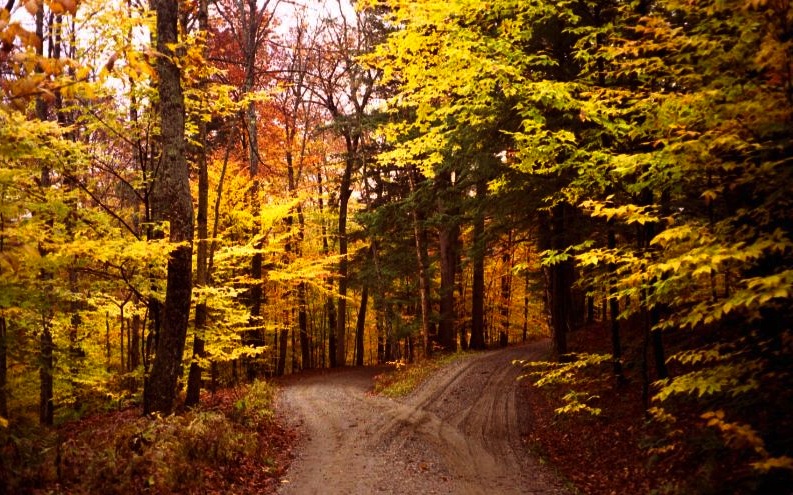
Apples and The Road Not Taken
On a Monday, I purchased two bags of Granny Smith apples at the Rainbow Grocery. I had then been accustomed to eating just half an apple daily. But the apples were a bit small and especially delicious. So instead of eating just half an apple (as I’d been doing) I started eating a whole apple daily. On Friday I realized that I wouldn’t have enough apples to last until my next planned trip to Rainbow, and thought that I’d need four more apples before then.
Later, on taking my usual walk through Fort Mason to the beach at Aquatic Park, I was walking up the steep bayside paved road for pedestrians and bicycles, when as I came to the summit my path crossed synchronistically with that of my friend Carol Schuldt (the legendary then 76 year old swimmer/surfer/cyclist). Like a mountain goat she emerged from walking on the natural steep bayside cliff below the road, and she climbed up onto the paved path where I was walking.
I asked in astonishment, “Carol what were you doing walking down there?” She replied that she didn’t like to walk in crowded places where others walk, but was glad to see me because she had brought me something in her backpack.
Thereupon, I told Carol she reminded me of a famous poem called “The Road Not Taken”. But momentarily I forgot the poet author’s name. Whereupon, Carol (who is not well read in literature and poetry) promptly reminded me that it was Robert Frost. I asked, “Carol, how did you know that?” In reply she told me that three days ago someone left a book of Frost’s poetry in front of her house. She picked it up and randomly opened it to a page where that poem appeared. Here it is:
The Road Not Taken
TWO roads diverged in a yellow wood,
And sorry I could not travel both
And be one traveler, long I stood
And looked down one as far as I could
To where it bent in the undergrowth;Then took the other, as just as fair,
And having perhaps the better claim,
Because it was grassy and wanted wear;
Though as for that the passing there
Had worn them really about the same,And both that morning equally lay
In leaves no step had trodden black.
Oh, I kept the first for another day!
Yet knowing how way leads on to way,
I doubted if I should ever come back.I shall be telling this with a sigh
Somewhere ages and ages hence:
Two roads diverged in a wood, and I—
I took the one less traveled by,
And that has made all the difference.
Carol and I then walked together to the beach, where she removed her backpack, and gave me four fresh apples which she’d brought for me.
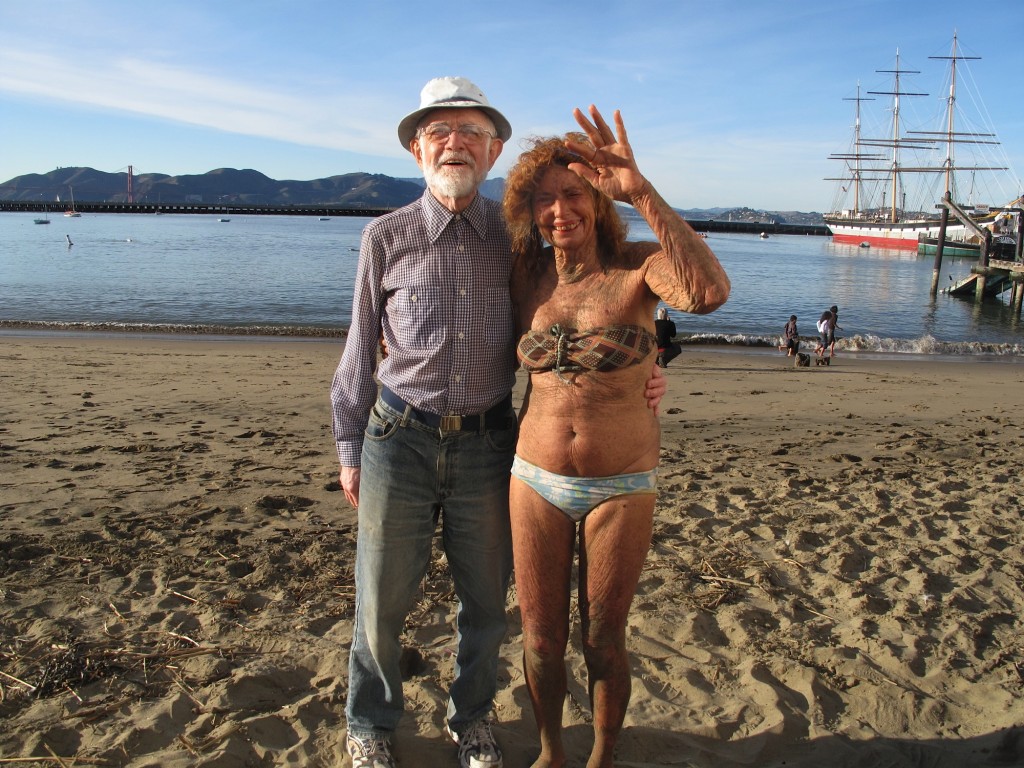
Carol Schuldt and Ron Rattner at Aquatic Beach
Say I am You ~ by Rumi
“There is no reality but God,
says the completely surrendered sheik,
who is an ocean for all beings.”
~ Rumi
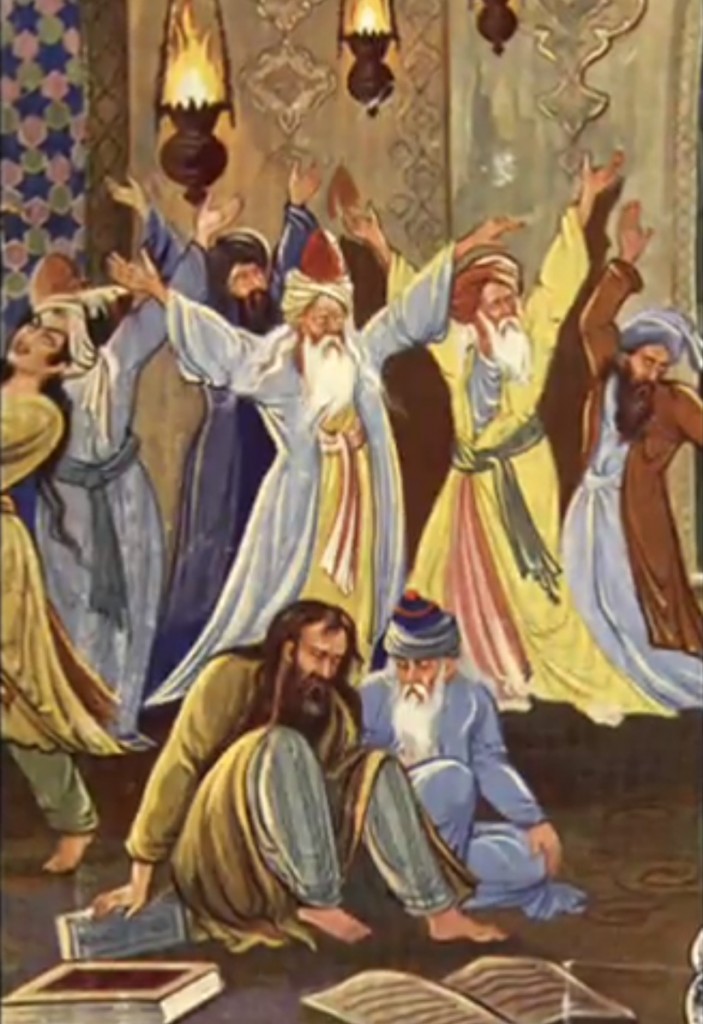
Say I am You ~ by Rumi
I am dust particles in sunlight,
I am the round sun.
To the bits of dust I say, Stay.
To the sun, Keep moving.
I am morning mist,
and the breathing of evening.
I am wind in the top of a grove,
and surf on the cliff.
Mast, rudder, helmsman, and keel,
I am also the coral reef they founder on.
I am a tree with a trained parrot in its branches.
Silence, thought, and voice.
The musical air coming through a flute,
a spark of stone, a flickering
in metal. Both candle,
and the moth crazy around it.
Rose, and the nightingale
lost in the fragrance.
I am all orders of being, the circling galaxy,
the evolutionary intelligence, the lift,
and the falling away. What is,
and what isn’t. You who know
Jelaluddin, You the one
in all, say who
I am. Say I
am You.
(Translation by Coleman Barks)
A Stash of Cash For Y2K – a “Manifestation Miracle” ~ Ron’s Memoirs
“And as to me, I know nothing else but miracles.”
~ Walt Whitman
“Synchronicity is choreographed by a great, pervasive intelligence that lies at the heart of nature, and is manifest in each of us through what we call the soul.”
~ Deepak Chopra, Spontaneous Fulfillment of Desire
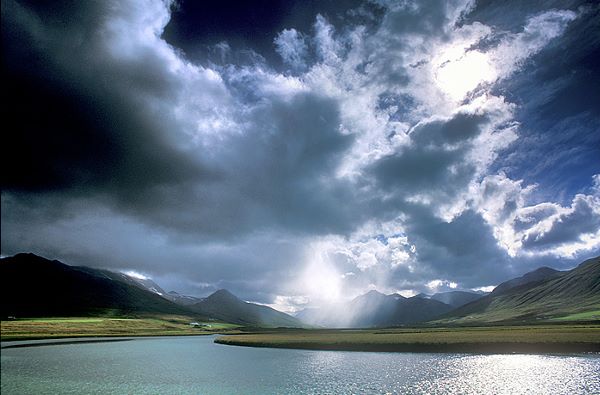
Before January 1, 2000, [the year “Y2K”] there was much societal fear in technically advanced countries about a possible planetary systemic break-down of crucial infrastructure institutions because of computer software bugs which would not facilitate or permit automatic transition to the new year and the new twenty first century.
As Y2K approached, I was then in a period semi-solitude with no computer, TV, or daily paper. So, I was largely insulated from exposure to mass media hysteria.
But, in conversations with friends, I learned enough about the technical facts to become a bit concerned. And, in case dire predictions of systemic failures proved prescient, my conservative lawyer attitude suggested that prudence required me to keep some cash at home.
So as our transition to the twenty first century became ever more imminent, I was thinking about withdrawing some cash from my neighborhood bank. But that trip to the bank proved unnecessary.
Here’s what happened:
One sunny afternoon, after praying and meditating that morning, I began my daily walk by the water in an elevated state of consciousness. As I was walking on a path beside the Bay toward Crissy Field beach, I noticed a small brown paper bag on the sidewalk near a waste disposal container. After walking just past the bag, I intuited that I should pick it up and put it into the trash receptacle. So I turned around, and picked it up.
Feeling something in the bag, I opened it before trashing it. To my amazement, I found ten new one hundred dollar bills in a small envelope, without any identification of the person who had put them there. They became my Y2K stash of cash.
Thus, the universe had provided my Y2K stash of cash with an amazing synchronistic “manifestation miracle”.
Thereafter, despite dire warnings, the new century dawned without great technological turmoil, and the stash of cash proved unnecessary. But it’s amazing synchronistic appearance enhanced my ever abiding faith in the benevolence of the universe. If you had asked me (as Einstein allegedly asked) “Is the universe friendly”, my emphatic answer would have been and still is, “Yes!”
So on New Year’s Day, 2000, I resolved to share my spiritual faith and optimism with others. And I wrote this poem:
MILLENNIAL OUTING
[January 1, 2000]
2000 years ago
Master Jesus counseled us
to pray in our closets alone.
But today we feel
a millennial urge
to emerge,
And to live
and share
our prayer
everywhere.
So, we’re coming out
of our spiritual closets,
Together,
to bless all life,
NOW
and evermore!
Epilogue.
My Y2K stash of cash had quickly manifested following thoughts about it. But only after many more years had elapsed did my millennial “outing” vow ultimately come to pass. And that happened only after the universe had synchronistically re-encouraged my prior determination to emerge from semi-seclusion.
In September, 2009, I received an inspiring astrological reading from Visionary Activist astrologer, Caroline Casey, who I much appreciate. Caroline intuitively and persuasively encouraged me to emerge at long last from my spiritual closet and to share my writings with the world.
Thereupon, with this encouragement from Caroline Casey, I began arrangements and preparations for starting SillySutras.com. The website was launched on May 22, 2010, with my heartfelt gratitude for our ‘friendly’ universe, and with deep aspiration to help bless all Life everywhere therein.
And so may it be!
Love is Our New Religion
“There is only one religion,
the religion of Love.”
~ Sathya Sai Baba
“Our purpose is process –
Metamorphic process.
Gleaning meaning in matter,
We learn all that matters –
We learn all that matters is LOVE!”
~ Ron Rattner, Sutra Sayings
“Love is joyous consciousness.
That consciousness is the Creator,
and it is out of Love and joy
that (S)He creates.”
~ Swami Amar Jyoti
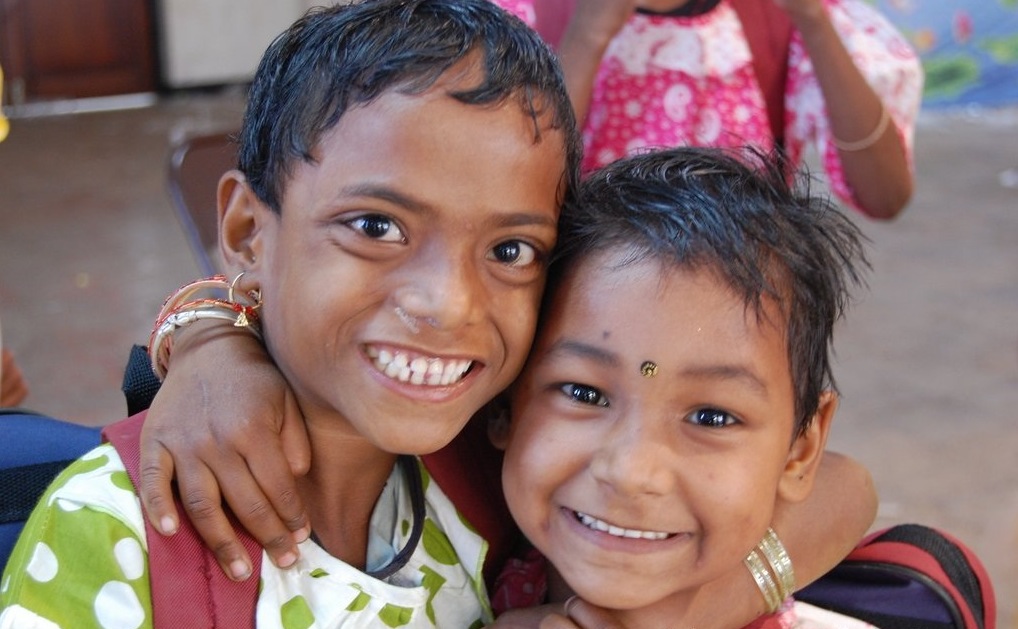
Ron’s Introduction
Knowingly or unknowingly, we are awakening to our true Essence and nature, which is LOVE. As we awaken we are co-creating an ever better reality – as we intend, intuit, and imagine it to be.
Spiritual author and teacher Brian Piergrossi has beautifully captured and communicated our re-awakening to LOVE with his poem “Love is the New Religion” .
Thanks to Aluna Joy Yaxkin and harpist Peter Sterling,
Brian’s powerful message is displayed with beautiful multimedia, photography and music on a You Tube video.
Here is the video version:
Here is an edited version of Brian’s poem:
Love is the New Religion
On the surface of our world right now
There is war, violence, and craziness
And things may seem dark.
But calmly and quietly
At the same time
Something is happening underground.
An inner revolution is taking place
And certain individuals
Are being called to a higher light.
It is a silent revolution
From the inside out
From the ground up.
This is a global co-operation
That has sleeper cells in every nation.
It is a planetary Spiritual Conspiracy.
You won’t likely see us on T.V.
You won’t read about us in the newspaper.
You won’t hear from us on the radio.
We don’t seek glory.
We don’t wear any uniform. We come in all shapes and sizes, colors and styles.
We are in every country and culture of the world
In cities big and small, mountains and valleys
In farms and villages, tribes and remote islands.
Most of us work anonymously
Seeking not recognition of name
But profound transformation of life.
Working quietly behind the scenes
You could pass by one of us on the street
And not even notice.
We go undercover
Not concerned for who takes the final credit
But simply that the work gets done.
Many of us may seem to have normal jobs.
But behind the external storefront
Is where the deeper work takes a place.
With the individual and collective power
Of our minds and hearts
We spread passion, knowledge, and joy to all.
Some call us the Conscious Army
As together
We co-create a new world.
Our orders come from the Spiritual Intelligence Agency
Instructing us to drop soft, secret love bombs
when no one is looking.
Poems ~ Hugs ~ Music ~ Photography ~ Smiles ~ Kind words Movies ~ Meditation and prayer ~ Dance ~ Websites Social activism ~ Blogs ~ Random acts of kindness…
We each express ourselves
In our own unique ways
With our own unique gifts and talents.
“Be the change you want to see in the world”
That is the motto that fills our hearts.
We know this is the path to profound transformation.
We know that quietly and humbly
Individually and collectively
We have the power of all the oceans combined.
At first glance our work is not even visible.
It is slow and meticulous
Like the formation of mountains.
And yet with our combined efforts
Entire tectonic plates
Are being shaped and moved for centuries to come.
Love is the religion we come to share
And you don’t need to be highly educated
Or have exceptional knowledge to understand it.
Love arises from the intelligence of the heart
Embedded in the timeless evolutionary pulse
Of all living beings.
Be the change you want to see in the world.
Nobody else can do it for you.
Yet don’t forget, we are all here supporting you.
We are now recruiting.
Perhaps you will join us
Or already have.
For in this spiritual conspiracy
All are welcome, and all are loved.
The door is always open.
Invocation
May the Universe empower us to realize together our common dream for an ever better world – where LOVE is our common religion, blessing everyone everywhere.
And so shall it be!
What’s In A Name?
“What’s in a name?
That which we call a rose
By any other name would smell as sweet.”
~ William Shakespeare – Romeo and Juliet (II, ii, 1-2)
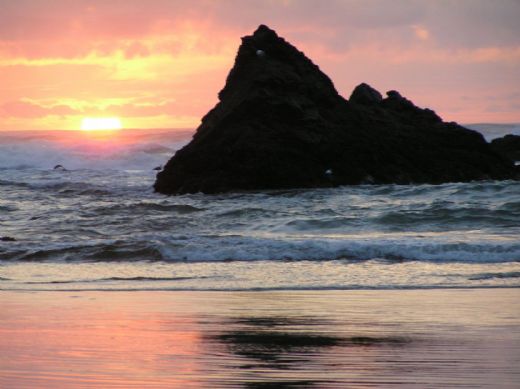
Naming is mental, not transcendental.
Naming is constraining.
Naming is then, not NOW.
Naming is mind designating, describing, and limiting:
the Indescribable,
the Illimitable,
the Infinite –
WHOLE.
Ron’s audio recitation of What’s In a Name
